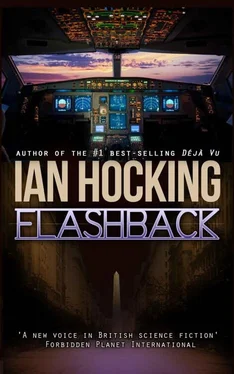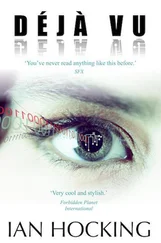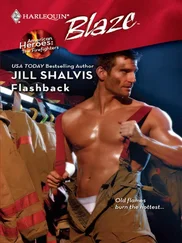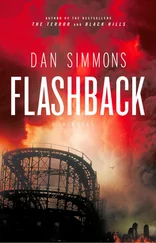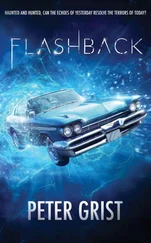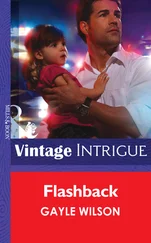~
He opened his eyes on a vast firmament, infinite in all directions, whose colourless fractals reminded him of feathers, shells and galaxies. Worlds within worlds , he thought. The illusion did not quite surmount the evidence of his bodily senses, which insisted that he still stood in the hut on the mountain, but laid itself like scales across his vision. As he looked deeper into the fractals, his body grew less substantial. The firmament might have been a photonegative starscape. Close by—yet thousands, perhaps millions of miles distant—were darker, larger orbs at the heart of the fractals.
Cory could not move. He might have been an astronaut in free-fall. His breathing became irregular.
I’m still in the hut , he thought. Easy. There is a whole mountain beneath me .
From behind him, he heard the wing-claps of an approaching bird. There was no time for fear. Only a tension before the impact of its talons, which fastened on his shoulders. The bird thrashed on, dragging him through the air towards the closest of the dark orbs. Cory looked up to see a black breast and a scythe-shaped beak larger than his head. He shied from the thumping wind and looked down.
My feet. I must have feet. Why don’t I see them?
Easy.
The hut, the mountain, and Saskia—all were gone.
‘What are you?’ he shouted.
‘ Ee-caw! Ee-caw! ’
Ichor , he thought. Ichor .
~
He awoke on a forest path looking at the fractal sky. How much time had passed? His head hurt. When he tried to move, plates of armour shifted about his shoulders. He stood slowly and looked at his hands. He was wearing leather gloves with a metal carapace that shifted as he turned his hands and rippled his fingers. His head was covered with a faceless helmet. Cory suppressed his unease.
So I play the knight.
He was standing in a petrified forest. Behind him and ahead, a mist obscured the beginning and the end of the path. Cory felt certain that each direction stretched to infinity. If this were a planet, the path was an equator. Next to the path, a horse ripped at the short grass. It wore a metal faceplate. The saddle was loaded with bedding, a broadsword… and the bird.
It was perched on the haft of the saddle, watching him. Cory’s instinct was to step back. Its crest was reddish brown and the breast black with blue streaks. The raptor-like eyes were trained on Cory, who put his hands akimbo and said, ‘So what now?’
The bird—if it was a bird—leaned forward and opened its mouth, black tongue pointing as though to vomit.
‘ Ee-caw! ’
The screech could not mean anything, but it meant everything to Cory. Suddenly, he knew that the program running this simulation was about to stop. The program existed on the device in Saskia’s head, and as she died, the program died. This knowledge came to Cory as though he had always known it; yet he also realised that he had not known it before the bird had screeched.
‘Show me,’ he said, climbing onto the horse. The bird flung itself into the white sky, became another of the black dots, then returned to Cory. The curve of its fall became a tangent and it skimmed the path at great speed. Cory wheeled his horse after it, flicking his reins left and right, Western style.
~
The horse cantered for a time that Cory could not measure. A sun appeared ahead, above the bird, and wintered to a bloody eye. In that instant the path widened to a clearing and Cory found himself at the edge of an immense wall of thorns. Their twisted branches looked ancient. Cory’s horse trotted around the perimeter of this wall and it became clear that there would be no easy way through. He looked for the bird, but it had gone. Not that it could help. He knew he had to cut through the barbs before this program, and this reality, failed around him. He pulled the horse up and withdrew his sword.
As he dropped to the ground, his armour clanked. He took one breath. Two breaths. He ran at the wall and swung two-handed strokes with such ferocity that five strides were his before the tendrils began to close in and he swung again and again, huge figure-of-eights, and the tangles parted on the edge of his blade. His ankles snared but he ripped them free. Fingers of wood hooked his elbows and slipped around his neck but he continued his berserk onslaught until the darkness changed to evening and he was finally through, his arms burning, and he was crouching in the dust of a vast, thorny cavern that held a full castle in perfect gloom. Only as Cory struggled for air—an illusion—and leaned on his sword did he see that the blade was marked with a spiralling rose.
Cory did not linger. It was possible that he could die here if he had no time to prepare his escape before this illusion failed. He used the sword to help himself stand. Then he walked through the barbican. The drawbridge flexed and rattled. He looked up at the murder holes. He was ready to dodge, but there was nobody. He passed through the lower bailey, where a hunting dog slept in the shadow of a cart, and entered a cloister. Its pumiceous lawn was dying. Through the open roof of the quadrangle, he could see three towers. Thorns obscured the sky yet by some illumination the walls of the towers were bright as porcelain and their pinnacles gun-metal blue.
He crossed the quadrangle and kicked open the door to the great hall. Around the table, a king and his retinue drowsed on their plates. Cory scanned their faces. None was Saskia. Even disguised, he would know her. She had to be in one of the towers; they were the truest places of safety in this illusion.
He hurried past the King and Queen, their crowns tilted. No heat shone from the fireplace. Stopped clocks read noon. He caught himself looking at his wrist, but time was not trustworthy here, however much he worried about its passing. He pushed through a second door, then a third, and climbed to the flagstones of the keep, the castle-within-a-castle. The three towers rose from its roof.
Cory rushed for the leftmost tower, then stopped. The door had a lintel embossed with a stone swan. The letters ‘Pb’ were cut into the swan’s wing. He sheathed his sword and strode for the middle tower. Another stone swan on the lintel, this time with ‘Ag’. And the third tower held a swan with ‘Au’.
He spun in frustration. Should he charge each tower in turn? No, he thought. She might have countermeasures, like before.
A twig fell onto a flagstone. Cory looked up. The simulation was dying.
‘Bird!’ he shouted. ‘‘Pb’ is lead. ‘Ag’ is silver. ‘Au’ is gold. What’s the answer?’
Beyond the dome of barbs, he heard a distant, ‘Ee-caw!’
And he knew. Three caskets, one each of gold, silver and lead, were offered to suitors of Portia in Shakespeare’s The Merchant of Venice . Shakespeare had adapted the idea from a manuscript called the Gesta Romanorum . Lead: Who chooseth me must give and hazard all he hath . Silver: Who chooseth me shall get as much as he deserves . Gold: Who chooseth me shall gain what many men desire.
She wants me to think that it is gold. It must be lead.
Cory ran to the left tower, marked ‘Pb’, and pushed the door. It opened easily. He took the spiral stairs in skips of three. He stumbled as a wash of nothingness passed underfoot and again there was a sensation of no time passing. Glitches in the simulation.
Just as the forest had seemed infinite to him, stretching around the planet, so this spiral went on and on. He considered with unease the notion that his ichor and Saskia’s wetware device had taken one another in a deadly embrace, and that his mind was trapped in a loop.
Читать дальше
